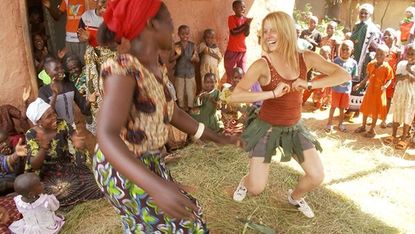
Tanzania: A Journey Within, a documentary by Sylvia Caminer, tells the story of Kristen Kenney, her friendship with Venance Ndibalema, and their life-altering trip to his home country of Tanzania. The two met at the University of Miami and instantly clicked. As their friendship blossomed the pair decided to venture to Africa to visit Venance's family's village, climb Mt. Kilimanjaro, and much more, all under the gaze of Caminer's camera.
The film premieres Friday, April 25 in conjunction with World Malaria Day, an event to spread awareness about the deadly, mosquito-borne disease. While in Tanzania, Kenney contracted malaria and upon her return home founded Malaika For Life. (Malaika means angel in Swahili.) The organization supports its mission, "Buy a Bracelet, Save a Life," by selling bracelets made by Tanzanian mothers, the proceeds of which are used to provide life-saving malaria treatments for children in need. Similarly, proceeds from every ticket sold for Tanzania: A Journey Within will help provide malaria medication.
We chatted with Kenney about the film and the journey that changed her forever.
Marie Claire: Why did you initially decide to go to Tanzania?
Kristen Kenney: My best friend Ven, Venance, who is my buddy in the movie, he and I met on a soccer field at the University of Miami and we had an instant connection through sports. We just had an awesome connection, two totally different people. He would challenge me, our conversations were awesome, and I loved hearing about how he grew up. He had asked me to come to Africa and I was very hesitant and like "Oh, are you kidding me? I am so scared of going over there! The only images [of Africa] I have are the movie Blood Diamond and of conflict and hardship," so I was reluctant at first actually to go. The more we talked about it I was like all right, let's go do it. Maybe we'll do a piece, like it'll be a travel series or something. At the time I was in public broadcasting. I've always had a background in TV and creative.
Then we met Sylvia Caminer through a mutual friend and she said, "Hey, this will be a great documentary. The juxtaposition between your two lifestyles and characters and that interesting dynamic will be really compelling in a documentary form." Three months later we were on a plane heading to Tanzania! I've always had a curious spirit and I've always wanted to see the outside of my comfort zone, but this was definitely a different level of that.
MC: Tell me more about your organization Malaika for Life. You started it when you returned from Tanzania, correct?
KK: I did. I was really sick the last week [of the trip] and I was in the hospital for four days with malaria there in Africa and it was $7 to get the life-saving treatment. It was really shocking because I didn't really know anything about malaria at that time and I didn't expect to ever get something like that. I thought I was invincible. I'm from America, the western world, how can I get a life-threatening illness? But I got it, and after getting out of the hospital I knew that was my calling.
I came back to America several days later— still was really sick, had to go back and get treatment in America—but from that day forward I made it my focus to do something about this situation and the fact that malaria kills a child every minute. It's pretty brutal. We can all make a difference for a small amount, really. That launched the "Buy a Bracelet, Save a Life" campaign in which all the bracelets that we have we buy from women in Africa, a group of women make the bracelets in Arusha … and it's a group called Tamiha. It's all micro-financing, so it supports the women with other initiatives and helps them launch other businesses. … We partnered with them, so they make the bracelets, then we sell them here and the proceeds buy medication to save a child from malaria.
Stay In The Know
Marie Claire email subscribers get intel on fashion and beauty trends, hot-off-the-press celebrity news, and more. Sign up here.
MC: So you've gone back to Tanzania to distribute these medicines?
KK: Yes, we've gone back twice and we have an operation on the ground that stocks health facilities with medicines as well.
MC: What were those two return trips like?
KK: It was really different. It was hard to go back. The first trip was so amazing, I really wanted to go back and experience the village life and see [Ven's] grandmother and everybody. It was really hard to go and not be able to see them, but it was amazing. It was a new journey, in a way. It felt really different. We were distributing medicine, seeing the benefits of the medicine, and seeing it all unfold in front of us, which was pretty awesome. I mean it was unbelievable to see that happen, but it was tough to not go back to the village.
MC: There's been a pretty sharp decline of 54 percent in the past 14 years of child malaria deaths in Africa. Are you hopeful that the disease will be eradicated completely in the near future?
KK: That's the goal. [Malaria] was eradicated in the 1950s in America. Now it's totally different when you're dealing with lack of infrastructure that you have in Africa. … It's a hard thing to combat because it's a multi-prong approach where it doesn't just come down to medicine, although to be treated to survive you need the medicine. But, you also need to look at preventative tools and Malaria No More (a non-profit organization) has done a great job with distribution of nets. So, when you have the prevention and the protection and you combine that with the medicine, it's one step closer. It's just getting all of Africa covered as far as nets and access to medicine.
A lot of the struggle is infrastructure but also social issues. … You're sick, but do you have the money to take the bus to get to the hospital? Do you want to self medicate? Do you want to do it holistically? It's really, really tough. … You see people becoming more educated with it and taking the bed nets seriously. Before people would use bed nets to fish!
MC: What do you hope that viewers will take away after they see the documentary?
KK: The very end was when I got malaria on the journey, but the whole time was a transformation. I think everyone's going to take away something different because you are seeing multiple journeys throughout the film. Ven, his journey is so emotional. Somebody going back for the first time to look at their home, people can relate to that. The struggle that they faced and going back and seeing that most of his friends and family had passed away, that's an emotional journey for somebody who can relate to that. For me, I was a stereotypical American, naïve girl who was unaware of what that world was really like. You see it in movies and pictures, but to actually live it is a different experience. People can look from outside, but really it takes time to look within.
MC: Have you taken those lessons you learned on this journey within into the rest of your life?
KK: All the time. Every day I have that curious spirit of wanting to be outside the comfort zone. I crave that. Some people don't. For me, I crave that and I wouldn't crave it so much without that experience and what I learned from my journey there. I did say this in the film, before going to Africa I felt soulless and trapped inside my little bubble and now I feel like there's such a big world. It's taking the time to really learn and understand that and discover that. I try to do that every day.
For more tickets and showtime information for "Tanzania: A Journey Within," visit tanzaniathemovie.com.
-
 This Week's Best On-Sale Picks Include a Tory Burch Bag and Pretty Silver Ballet Flats
This Week's Best On-Sale Picks Include a Tory Burch Bag and Pretty Silver Ballet FlatsWarm weather is finally here—it's time to dress like it.
By Brooke Knappenberger Published
-
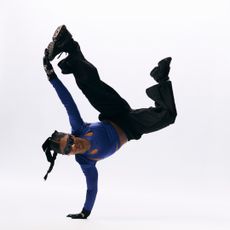 A Sporty It-Sneaker Era Is About to Begin
A Sporty It-Sneaker Era Is About to BeginNike's next Air models are designed for Olympic athletes, but they'll soon be all over street style.
By Halie LeSavage Published
-
 These Luxury Beauty Gifts Are Proven to Make Mom Feel Spoiled on Mother’s Day
These Luxury Beauty Gifts Are Proven to Make Mom Feel Spoiled on Mother’s DayThe best in makeup, haircare, and skincare for your favorite woman.
By Brooke Knappenberger Published
-
 The Best Bollywood Movies of 2023 (So Far)
The Best Bollywood Movies of 2023 (So Far)Including one that just might fill the Riverdale-shaped hole in your heart.
By Andrea Park Published
-
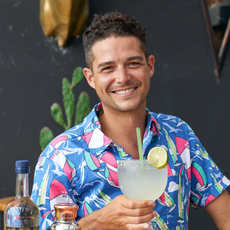 ‘Bachelor in Paradise’ 2023: Everything We Know
‘Bachelor in Paradise’ 2023: Everything We KnowCue up Mike Reno and Ann Wilson’s “Almost Paradise."
By Andrea Park Last updated
-
 Who Is Gerry Turner, the ‘Golden Bachelor’?
Who Is Gerry Turner, the ‘Golden Bachelor’?The Indiana native is the first senior citizen to join Bachelor Nation.
By Andrea Park Last updated
-
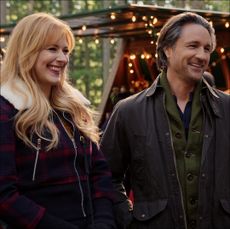 ‘Virgin River’ Season 6: Everything We Know
‘Virgin River’ Season 6: Everything We KnowHere's everything we know on the upcoming episodes.
By Andrea Park Last updated
-
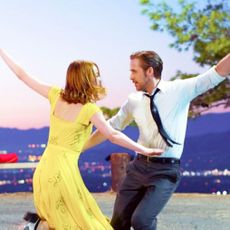 The 60 Best Musical Movies of All Time
The 60 Best Musical Movies of All TimeAll the dance numbers! All the show tunes!
By Amanda Mitchell Last updated
-
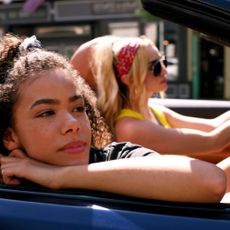 'Ginny & Georgia' Season 2: Everything We Know
'Ginny & Georgia' Season 2: Everything We KnowNetflix owes us answers after that ending.
By Zoe Guy Last updated
-
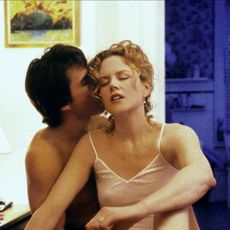 35 Nude Movies With Porn-Level Nudity
35 Nude Movies With Porn-Level NudityLots of steamy nudity ahead.
By Kayleigh Roberts Last updated
-
 The Cast of 'The Crown' Season 5: Your Guide
The Cast of 'The Crown' Season 5: Your GuideThe Mountbatten-Windsors have been recast—again.
By Andrea Park Published